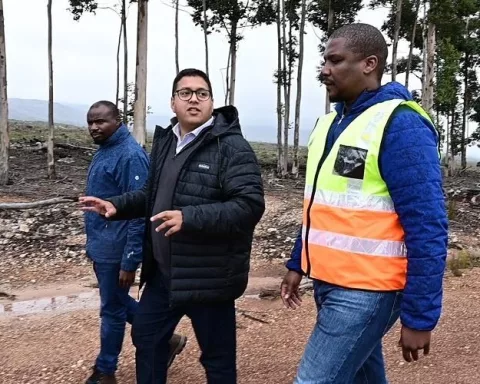Artificial intelligence, social bots and algorithms have significantly impacted people’s lives in South Africa. With the national and provincial elections of 2024 fast approaching, questions arise regarding the possible positive and negative impacts of these technologies on the electoral process.
To explore this topic in depth, the Electoral Commission is organizing a unique Community Dialogue, featuring a panel of distinguished experts who will discuss how the automation of specific aspects of our lives might shape the elections. The Commission has invited members of the media to attend the event, which will take place on Tuesday, 29 August 2023, from 18h00 to 20h00 at the Ocean Sciences Campus of Nelson Mandela University in Summerstrand.
Panelists
The diverse lineup of panelists includes:
- Sy Mamabolo, Chief Electoral Officer of the Commission
- Dr. Ongama Mtimka, Political Science Lecturer at Nelson Mandela University
- Phumzile van Damme, Harvard University Fellow and Disinformation Combatting Strategist
- Sphamandla Mhlongo, Senior Programmes Officer at the Democracy Development Programme
- Dr. Thabo Rapoo, Manager for Research and Knowledge Management at the Commission
- Rochelle de Kock, Editor of The Herald and Weekend Post as well as Eastern Cape Convenor of the South African National Editors Forum
The Community Dialogue will be moderated by Professor Bheki Mngomezulu, Director of the Centre for the Advancement of Non-Racialism and Democracy at Nelson Mandela University.
Attendance and Contact Information
To attend the event in person, confirm your attendance with Ms. Hlengiwe Makhoba of the Electoral Commission’s Communication Department at Spokesperson@elections.org.za or by sending a WhatsApp message to 082 600 6386.
For media interviews, requests can be emailed to spokesperson@elections.org.za or contact Kate Bapela, the media contact for the event, at 082 600 6386.
Purpose of the Community Dialogue
The Community Dialogue aims to raise awareness and encourage discussions on how the rapidly-evolving technological landscape will impact the electoral process in South Africa. The insights gathered during this conversation will be crucial in helping the Electoral Commission, the media, and the public prepare for the potential challenges and opportunities associated with artificial intelligence, social bots, and algorithms.
By informing the public and engaging in open dialogues such as this, the Electoral Commission strives to create an environment that fosters a free, fair, and transparent election process while embracing the potential benefits that technology can bring.
As the 2024 general elections approach, it is crucial that every stakeholder, be it the Electoral Commission, the media, or the general public, is adequately informed and educated on how technological advancements might shape the electoral process. The Community Dialogue serves as a platform for raising awareness, promoting knowledge exchange, and fostering an informed and engaged civil society, ultimately ensuring a more resilient and democratic South Africa.












